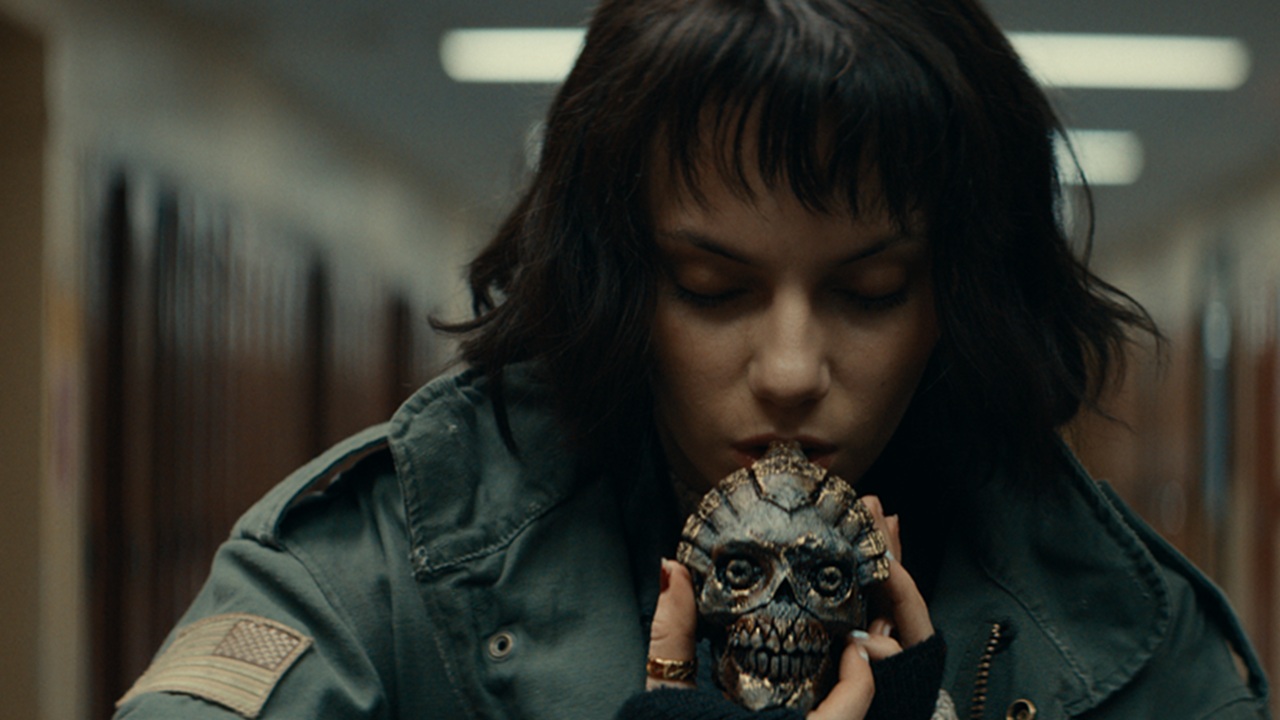To Human Misery
The band Antimatter that began as a creative form of therapy for co-founder Mick Moss has grown into one of prog’s best-kept secrets.
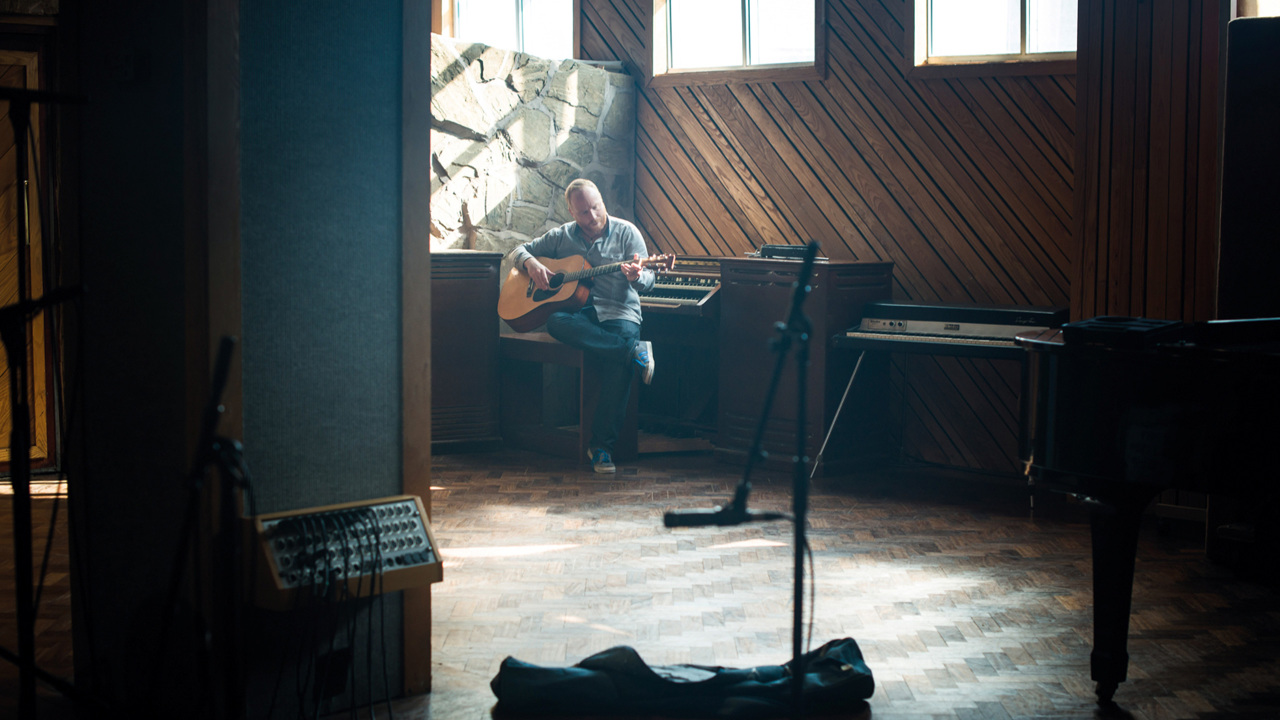
Select the newsletters you’d like to receive. Then, add your email to sign up.
You are now subscribed
Your newsletter sign-up was successful
Want to add more newsletters?

Every Friday
Louder
Louder’s weekly newsletter is jam-packed with the team’s personal highlights from the last seven days, including features, breaking news, reviews and tons of juicy exclusives from the world of alternative music.

Every Friday
Classic Rock
The Classic Rock newsletter is an essential read for the discerning rock fan. Every week we bring you the news, reviews and the very best features and interviews from our extensive archive. Written by rock fans for rock fans.

Every Friday
Metal Hammer
For the last four decades Metal Hammer has been the world’s greatest metal magazine. Created by metalheads for metalheads, ‘Hammer takes you behind the scenes, closer to the action, and nearer to the bands that you love the most.

Every Friday
Prog
The Prog newsletter brings you the very best of Prog Magazine and our website, every Friday. We'll deliver you the very latest news from the Prog universe, informative features and archive material from Prog’s impressive vault.
Mick Moss can honestly say that music has saved his life. “The whole reason I started Antimatter was for therapy, and that’s what it still is,” he reveals. “I’ve also had a lot of messages from people who say, ‘No shit, man. This is my life you’re singing about.’”
When Prog links up with Moss, Antimatter are part-way through a European tour and the frontman is enjoying a rare afternoon off in Frankfurt, before their bus rolls onto the east German city of Leipzig. Given the melancholic nature of the band’s music, it seems fitting that it’s grey, wet and miserable outside as we chat. Perhaps surprisingly, Moss seems upbeat despite the bad weather, and the discovery that it was raining inside his bunk when he woke up that morning.
Antimatter came about almost by accident back in 1998 when Moss was hanging out with his old school friend, and Anathema’s then bassist, Duncan Patterson. “I had been writing music from about 1995 onwards as a form of therapy and I’d bought a load of recording equipment,” he remembers. “Duncan was paying me a visit to drown his sorrows about Anathema because he was kind of unhappy at the time. I was really depressed because I’d had a failed relationship and some psychological problems, so the music I was writing was kind of dark, but he liked the sound and suggested we do something together.”
As a youngster, Moss’ listening habits began with Ultravox, shifted onto rock and metal, and then onto prog, with bands such as Pink Floyd and Yes. By the time he hit his late teens, he was worshipping at the psychedelic altar of Ozric Tentacles. Back then, the music he was making reflected these new passions as he tried to recreate the Ozrics’ trippy sounds, but a nervous breakdown caused his style to veer towards more melancholy realms.
Despite being mates since their early teens, Moss had never considered teaming up with Patterson to make music, but when his friend left Anathema after Alternative 4, it seemed like the perfect time to combine forces.
Antimatter’s original style mixed Anathema’s darkness with the electronic sounds and very personal lyrics that Moss had been generating through his bedroom recordings. Their early demos had a strong trip-hop vibe, heavily inspired by Patterson’s love of Portishead and Massive Attack, as well as Moss’s own passion for Radiohead’s OK Computer and Tori Amos’s experimental From The Choirgirl Hotel. The melancholic results also featured vocals from Michelle Richfield, who had guested on Anathema’s Eternity. In the studio, Richfield was joined by singer Hayley Windsor, with Moss contributing vocal parts here and there as he didn’t yet feel confident enough to front the band entirely by himself.

Antimatter’s debut Saviour was released in 2001, initially with limited distribution, and drew comparisons to both Anathema and The Gathering, who had recently released the experimental How To Measure A Planet?. Was there ever a feeling of frustration that Antimatter’s music wasn’t reaching the same levels of popularity as their Dutch counterparts?
The latest news, features and interviews direct to your inbox, from the global home of alternative music.
“It wasn’t frustrating for me,” Moss says, “but maybe for Duncan – I’ve seen him mention it a few times in interviews he’s done since. I came from my bedroom so it didn’t really bother me what other people were doing – I was just happy to be doing what I was doing.”
Slowly but surely, word started to spread. Tours, a label deal with Prophecy and live albums followed, and then, in 2005, Duncan Patterson decided to leave the band for “personal reasons”. It was shortly after the release of their third album, Planetary Confinement. His departure, although unexpected, was an amicable one and the pair remain good friends, but it did raise questions about the future of the band.
“I thought, ‘What should I do now?’” says Moss. “It was Duncan who came up with the name… but the name is kind of an empty coffin and you fill it up with what it comes to represent. So I was in a bit of a situation. I’d worked my arse off on these songs, they were my babies, and I didn’t want to just cut myself loose… so I carried on, and it still is incredibly personal to this day.”
Based on the music he writes as Antimatter, you would be forgiven for assuming that Mick Moss would be full of doom and gloom in person, but he’s quite the opposite. He’s open and frank about his previous mental illness – after all, had he not been able to channel his depression into creativity, Antimatter almost certainly wouldn’t exist today.
Many of the reflective and personal themes in his lyrics have also been shared by melancholic prog acts such as Porcupine Tree, iamthemorning and Riverside, but for Moss, songwriting is almost a form of mindfulness. This is clearly apparent on Antimatter’s recently released The Judas Table. The project’s sixth studio album is one that Moss had been intending to make for several years and on it he explores a host of themes, including betrayal and self-doubt, all wrapped up in strong, dark melodies. But the album also has a calm, almost uplifting quality, suggesting Moss is now successfully conquering his inner demons.
“I’ve always been an open kind of guy and I’ve been a bit naïve,” he explains of the powerful concept behind the album’s lyrics. “I didn’t really expect there to be people with a cruel streak masquerading as friends.
“The year before last, I turned 40 and I’ve shed some psychological skin; I seem to have had a bit of a rebirth, mentally. I’ve developed a small interest in sociology of late and I’ve come to accept that there are
a lot of people out there who don’t have this thing called empathy. So writing these songs is empowering because I’m writing largely about things I’ve learned. It’s not so much a rule book but more a kind of self-help. Next time, I hope I’ll be a bit quicker to spot when someone is genuine or if they’re just wearing a mask.”
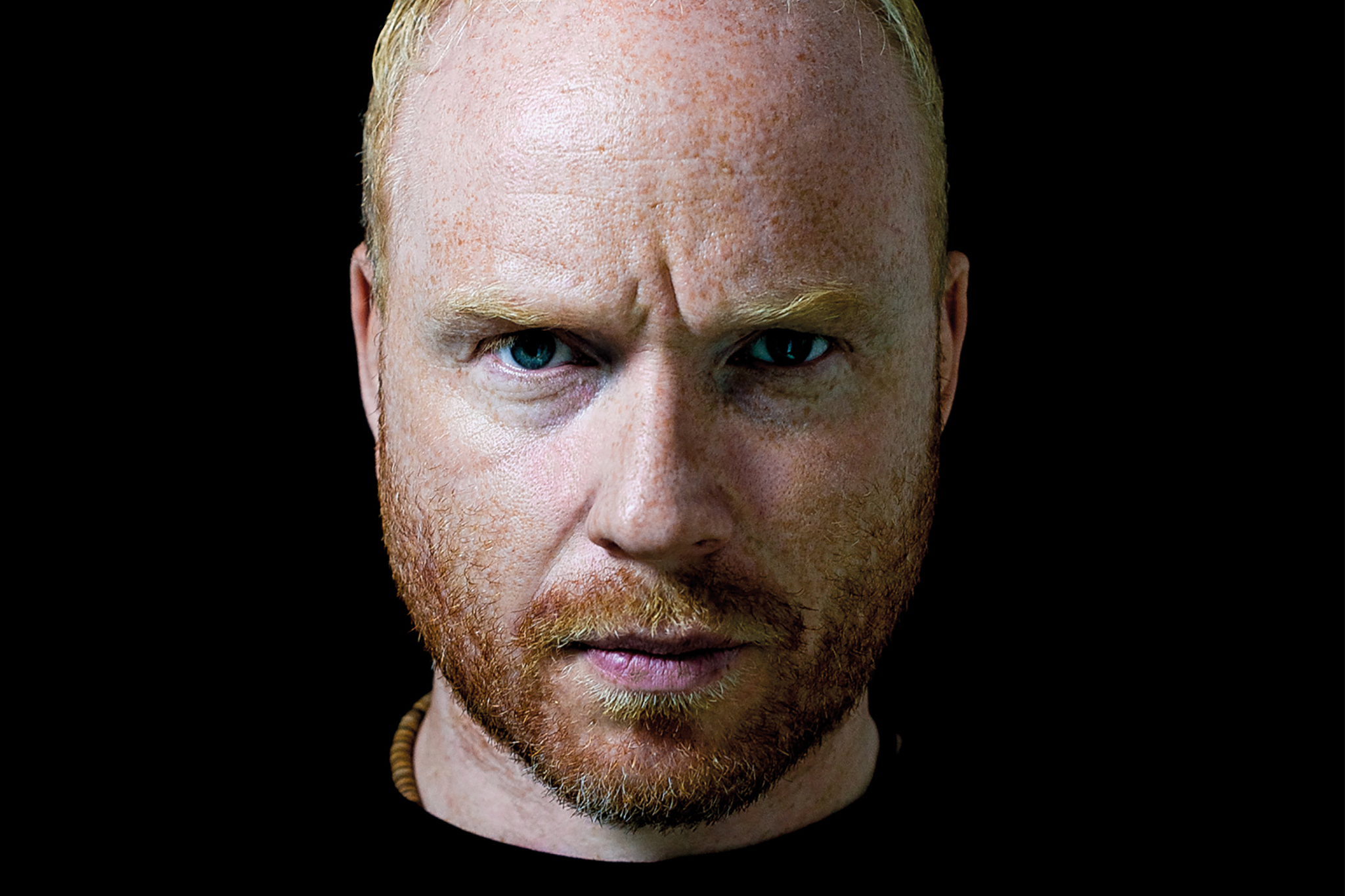
Created three years after the release of Fear Of A Unique Identity, and following a spate of touring, The Judas Table is a tantalising collection of 10 melancholic progressive rock songs. It’s augmented by a revolving cast of musicians, many of whom are also part of Moss’ live band. The studio line‑up includes bassist Ste Hughes, violin player Rachel Brewster, drummer Liam Edwards and guest vocalist Jenny O’Connor, who also happens to be Moss’ neighbour back home in Liverpool. “I really take pleasure in being able to give people a platform,” he says. “There are a lot of talented people who just don’t get the platform to do things and I love being able to do this.”
The striking sleeve art was based on Moss’ own ideas and was realised by Spanish illustrator Mario Sánchez Nevado. “I didn’t want to have a table on the cover but I wanted to have the essence or memory of betrayal. You know, when you’ve been hurt and you’re not in a relationship anymore but the pain still remains. I also wanted to get rid of any gender and make the figures completely androgynous because I’m singing about all betrayals, not just those in a heterosexual relationship.”
Antimatter’s musical style has grown over the years, along with Mick Moss’ powerful presence as a frontman, yet his friendship with fellow Merseysiders Anathema has remained constant. Although he’s always wanted Antimatter to be seen as a standalone band, there’s no denying their associations, which are reflected both stylistically and in terms of personnel throughout the band’s existence. They’ve even covered each other’s music at live shows. It’s not that Moss wants to blot them entirely from Antimatter’s history – quite the opposite, as he speaks warmly of both Duncan Patterson and Daniel Cavanagh during our interview – but he wants their music to be judged purely on its own merit.
“I’ve been so conscious of getting away from the whole Anathema connection because I really want to stand on my own two feet,” he says. “I’m sure Danny [Cavanagh] won’t mind me saying we’ve got a mutual respect for what each other is doing, but I just want to be identified as a separate entity. The press will go on for ages about the whole Anathema thing, and maybe some musicians would have milked that, but I’ve always wanted to be responsible for my own thing.”
Outside, the rain continues to pour down and Moss fields texts from his bandmates, who want to know what time their tour bus is leaving. Our conversation drifts back to their live shows, which are going extremely well.
“I’ve noticed a real upturn in the audience numbers and their enthusiasm… there’s a real sense of emotional investment in the crowd, more on this tour than any other in the past,” he reveals. “I think we’re at the right level now to do a live DVD. There’s a lot of energy from the last three albums so the live performances have totally changed over the last 10 years and I love every song we’re playing live nowadays.”
At time of going to press, Antimatter have just played a one-off show in London – only their seventh UK gig in 15 years – but with aspirations for that live DVD, and new albums for Antimatter and Sleeping Pulse already in the works (the latter being his atmospheric studio project with Portuguese fan Luis Fazendeiro), it looks like 2016 is going to be a very busy year for Mick Moss.
“I want to celebrate where I am at the moment, but I’ve got the concept for the next Antimatter,” Moss reveals. “I’ve had it for about the last seven or eight years and I’m going to keep it under wraps for now, but it’s about my experiences as a teenager. I’ve got Fear… and …Judas… out of the way, so now it’s time to work on this next one.”
It’s taken a long time but it feels like Antimatter are finally reaping the rewards they’ve worked so hard for.
The Judas Table is out now on Prophecy. Visit www.antimatteronline.com for more information.
A Unique Identity
Antimatter’s studio albums so far…
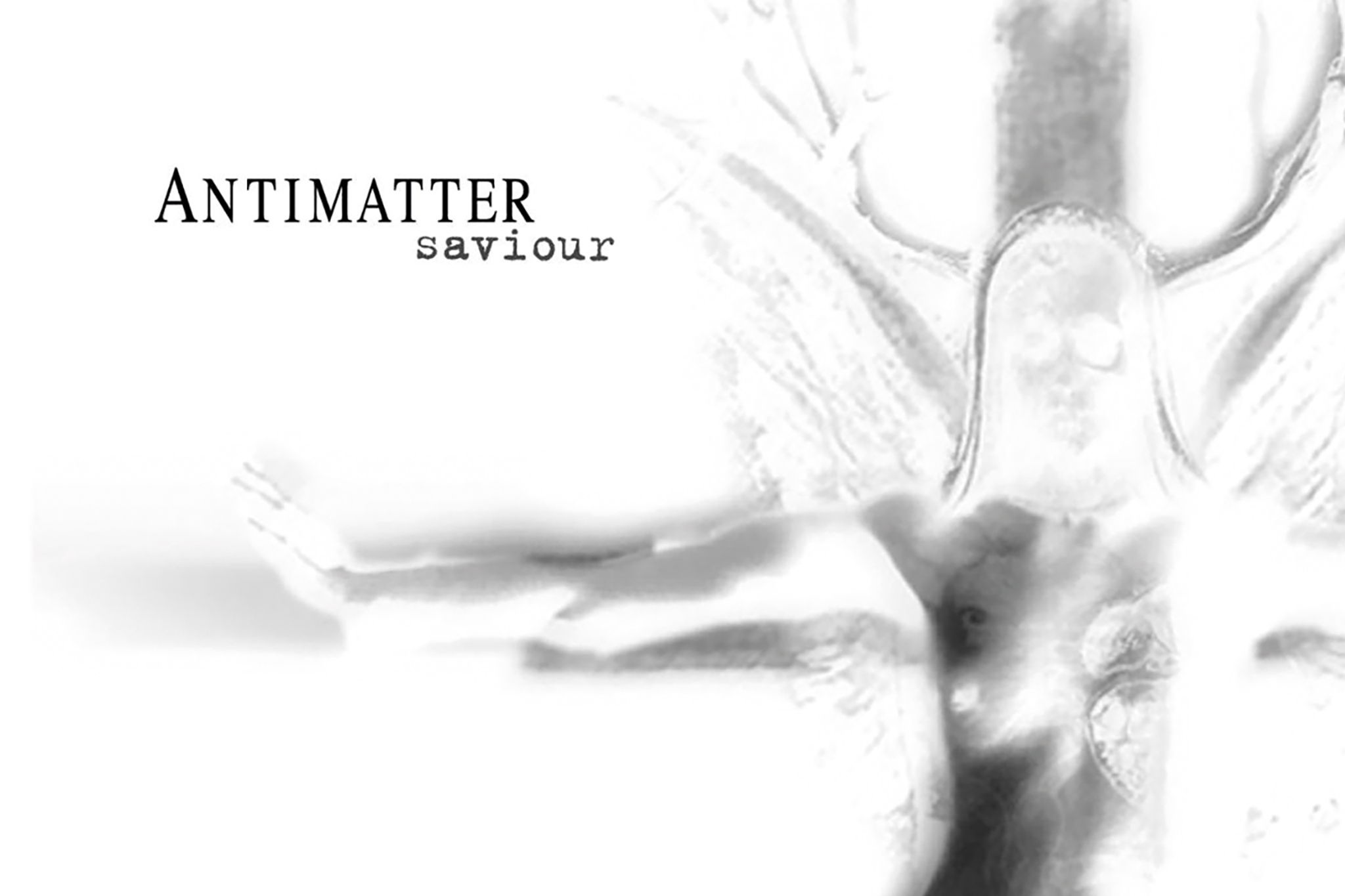
SAVIOUR (2001)
The album that started it all. Dreamy, atmospheric and very dark in tone, its 10 hauntingly beautiful tracks have a slick trip-hop edge and a strong Portishead feel to them. In interviews given at the time of the album’s release, co‑writer Duncan Patterson also admitted that he was influenced by Roger Waters.
Essential track: Holocaust.
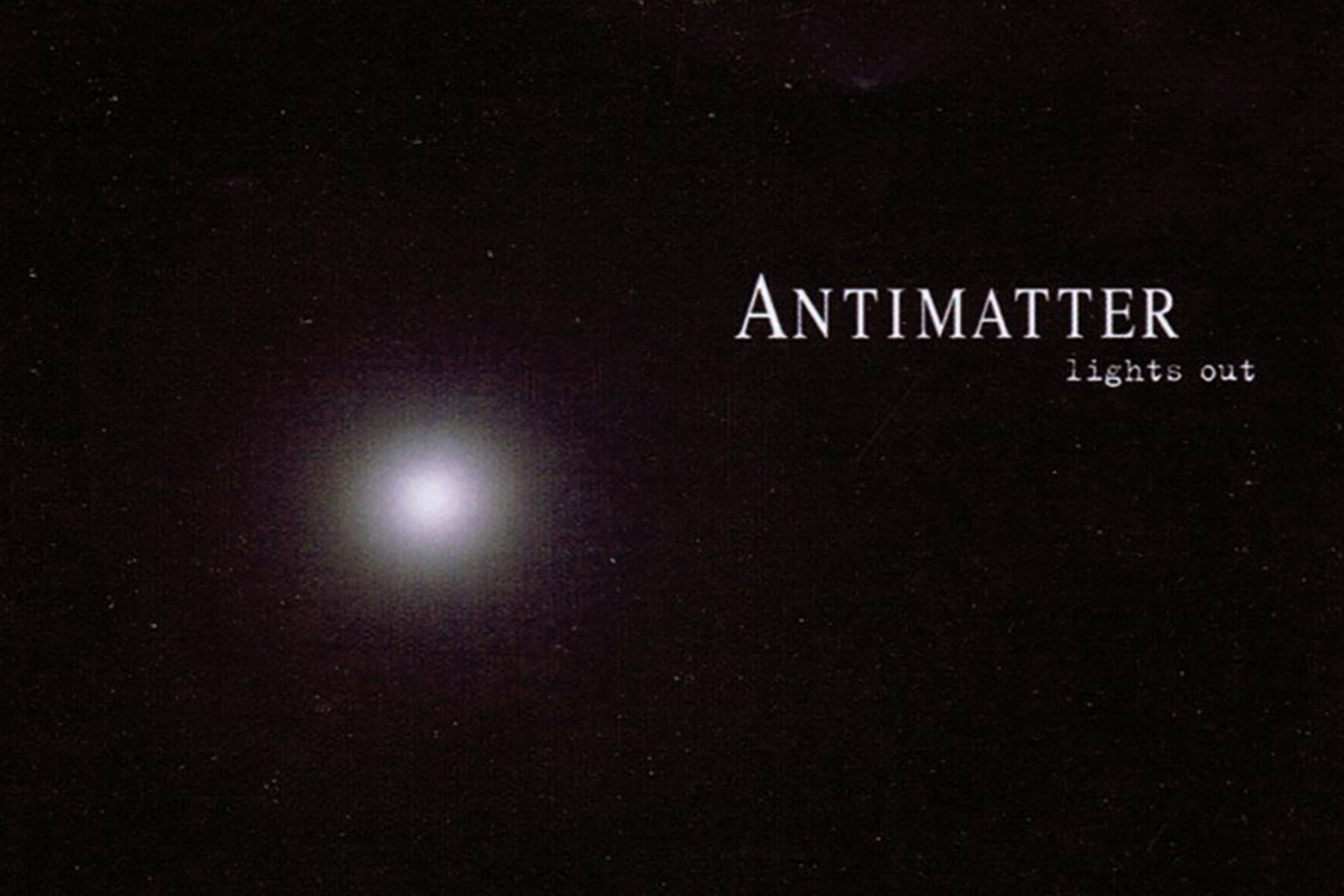
LIGHTS OUT (2003)
Highly experimental follow‑up that retraces Moss and Patterson’s prog roots, with additional nuances of Pink Floyd and an almost ethereal quality at times. This ambitious album also features Anathema’s Jamie Cavanagh on percussion.
Essential track: Reality Clash
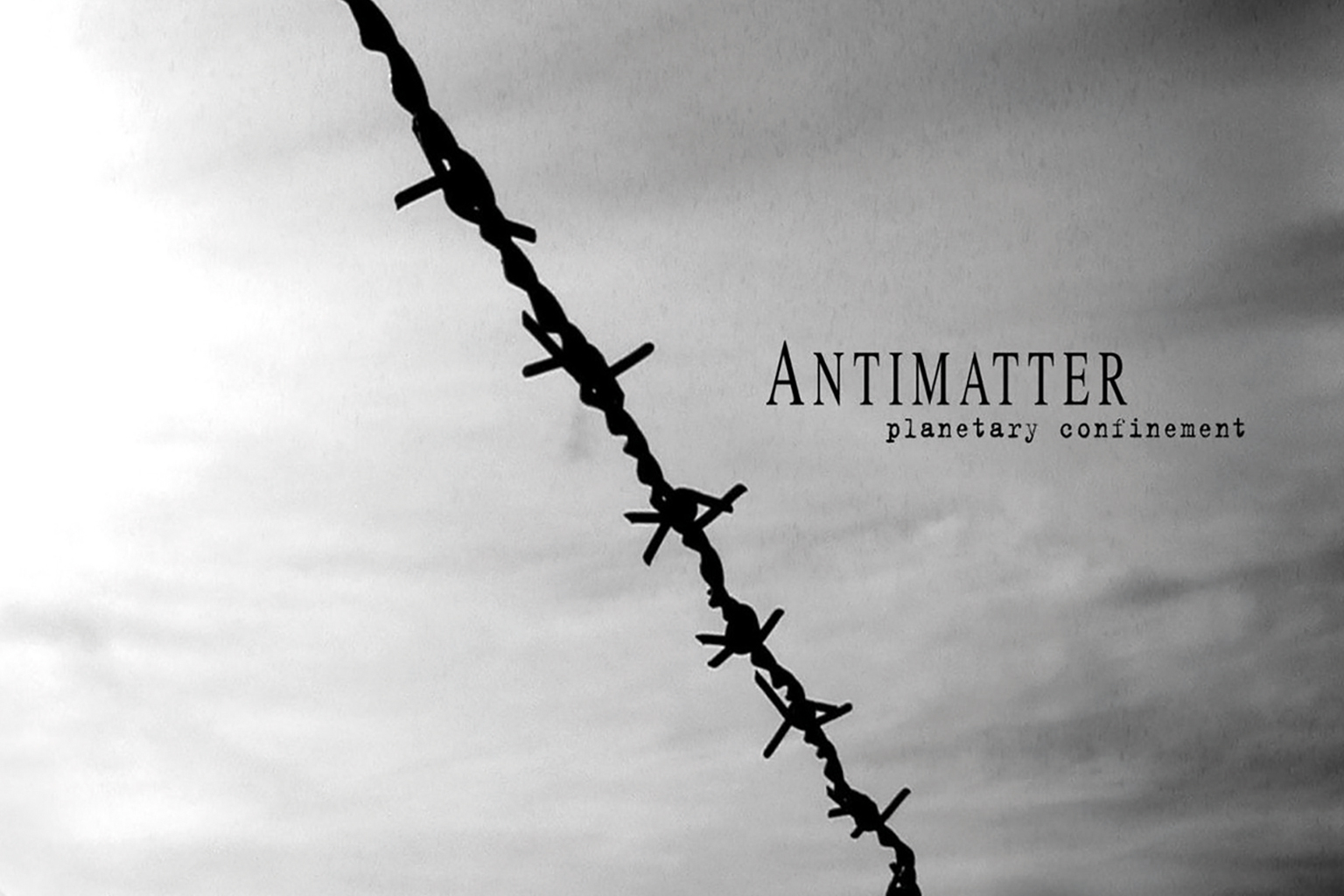
PLANETARY CONFINEMENT (2005)
Duncan Patterson’s final album with Antimatter sees the band move away from electronic influences and more towards the semi‑acoustic melancholic rock that would go on to dominate their sound on later albums. The hype sticker that appeared on later copies even described it as, “The saddest album of the year.”
Essential track: The Weight Of The World.
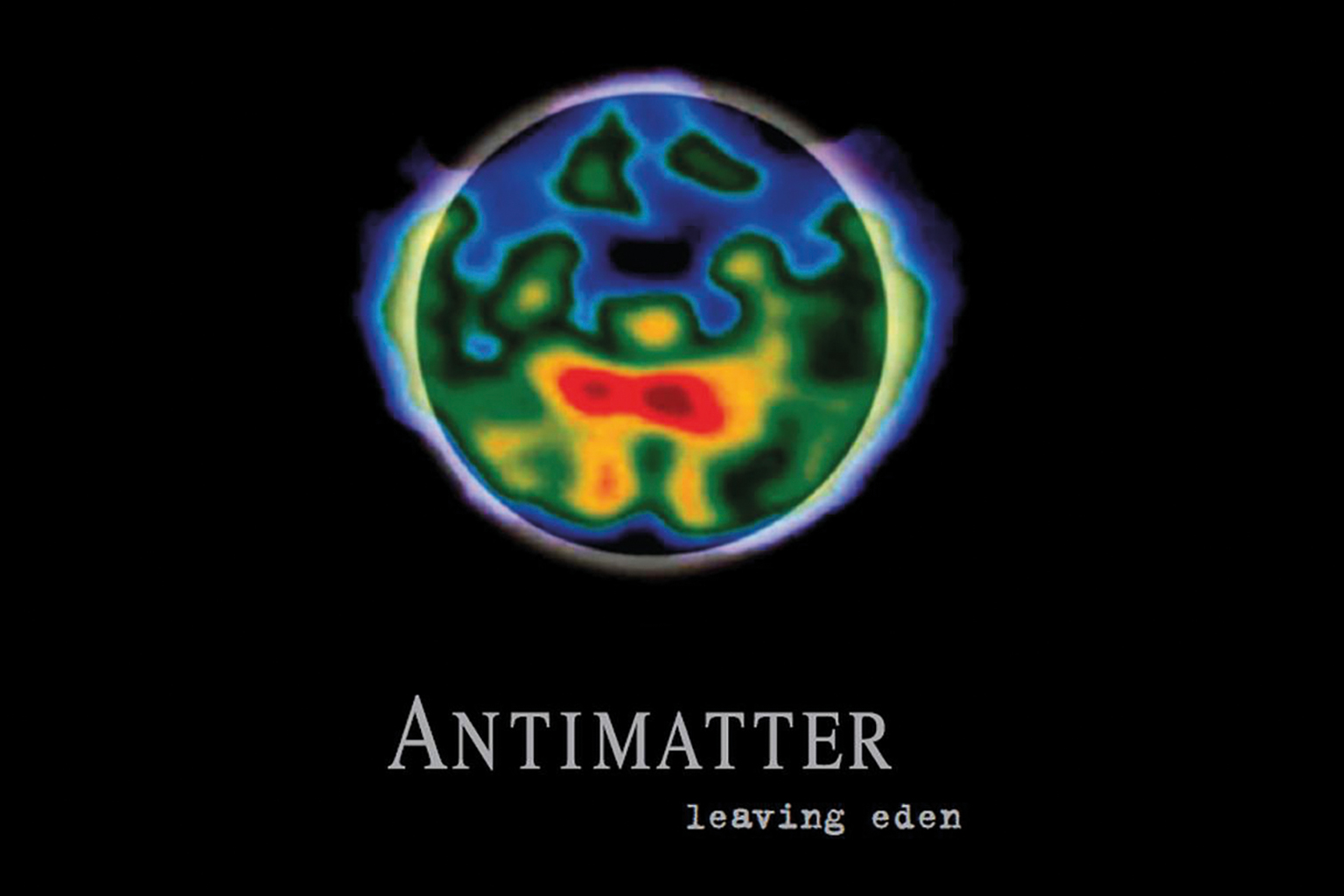
LEAVING EDEN (2007)
Mick Moss goes solo with help from Anathema’s Daniel Cavanagh on guitars and piano. Darker and more brooding than its predecessors, Antimatter’s sound is at its most melancholy here, with heavy emphasis on Moss’s unusual vibrato baritone vocals.
Essential track: The Immaculate Misconception.
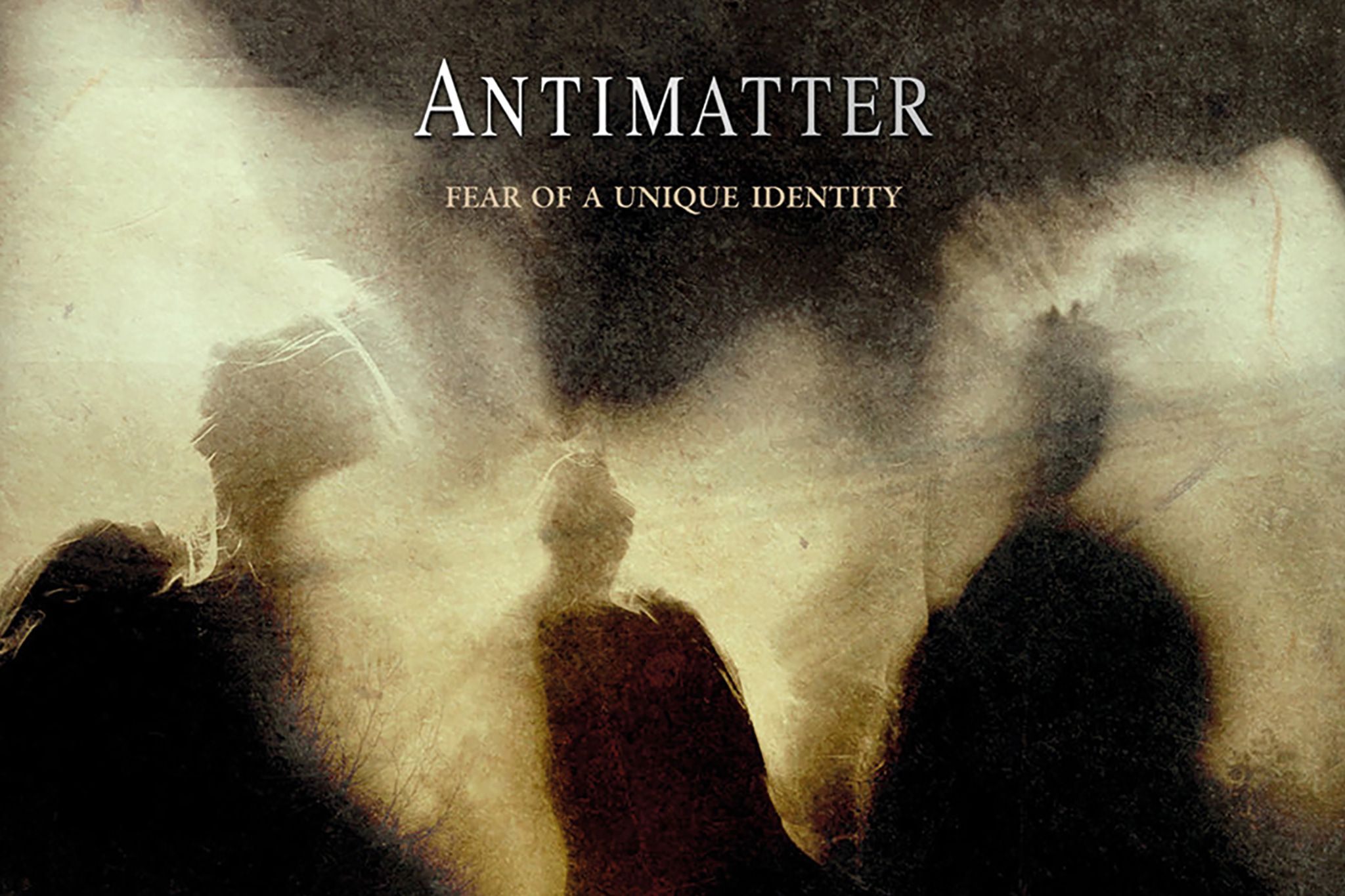
FEAR OF A UNIQUE IDENTITY (2012)
Featuring guest vocals from Latvian darkwave singer Vic Anselmo, Antimatter’s fifth release sees Mick Moss combining the band’s earlier trip-hop influences with their darker melancholic rock to successfully create more of a hybrid album.
Essential track: Monochrome.
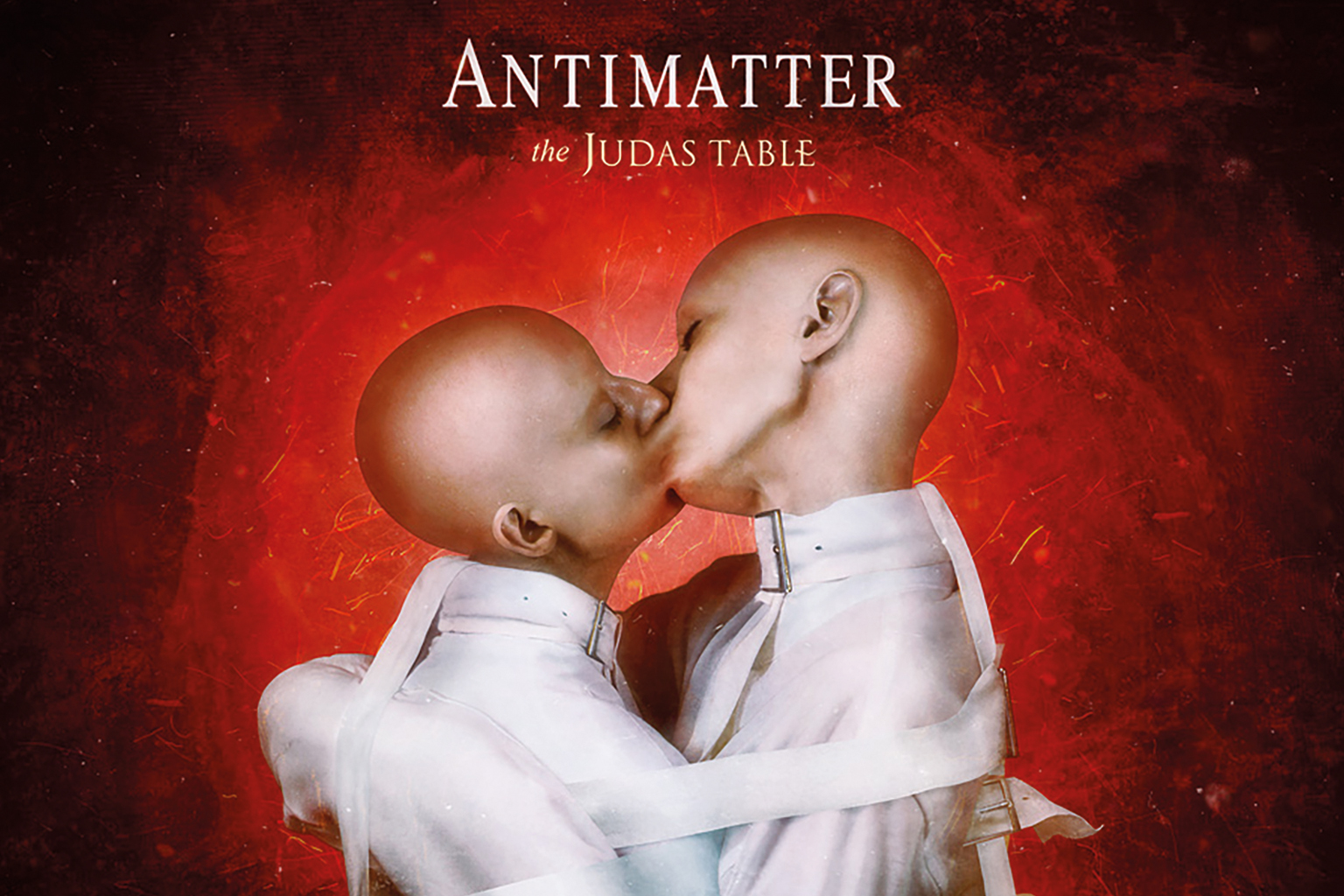
THE JUDAS TABLE (2015)
With co-production and mastering by Anathema drummer Daniel Cardoso, Antimatter’s latest builds rich atmospheres against a powerful concept of betrayal on their most dynamic release to date. At times, it manages to sound more uplifting and optimistic than their previous offerings, without losing any of the band’s melancholy trademarks.
Essential track: Stillborn Empires.
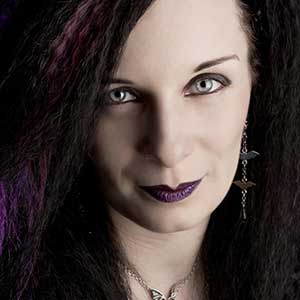
Contributing to Prog since the very first issue, writer and broadcaster Natasha Scharf was the magazine’s News Editor before she took up her current role of Deputy Editor, and has interviewed some of the best-known acts in the progressive music world from ELP, Yes and Marillion to Nightwish, Dream Theater and TesseracT. Starting young, she set up her first music fanzine in the late 80s and became a regular contributor to local newspapers and magazines over the next decade. The 00s would see her running the dark music magazine, Meltdown, as well as contributing to Metal Hammer, Classic Rock, Terrorizer and Artrocker. Author of music subculture books The Art Of Gothic and Worldwide Gothic, she’s since written album sleeve notes for Cherry Red, and also co-wrote Tarja Turunen’s memoirs, Singing In My Blood. Beyond the written word, Natasha has spent several decades as a club DJ, spinning tunes at aftershow parties for Metallica, Motörhead and Nine Inch Nails. She’s currently the only member of the Prog team to have appeared on the magazine’s cover.
